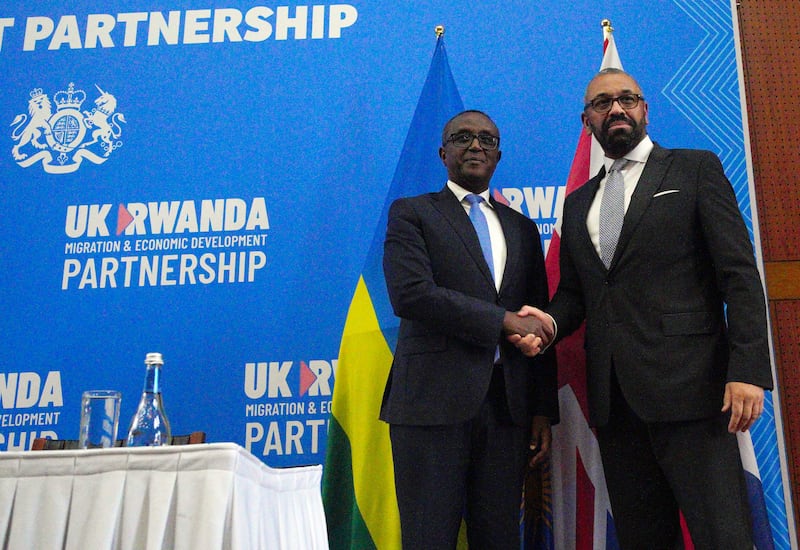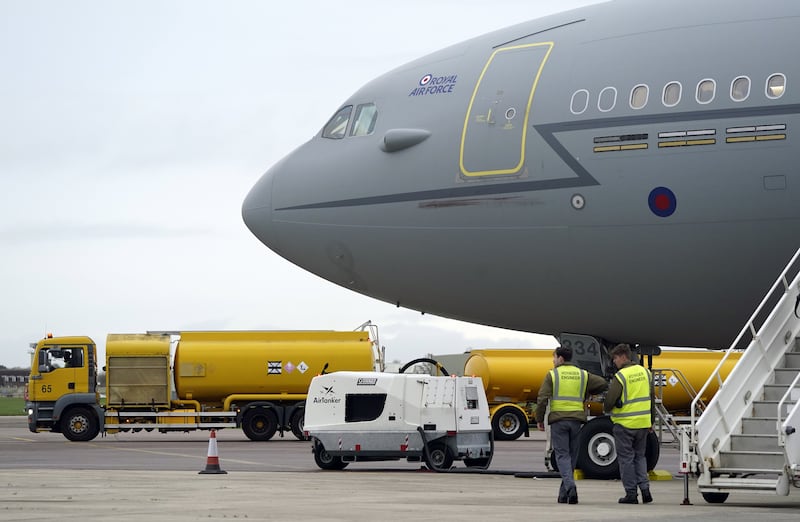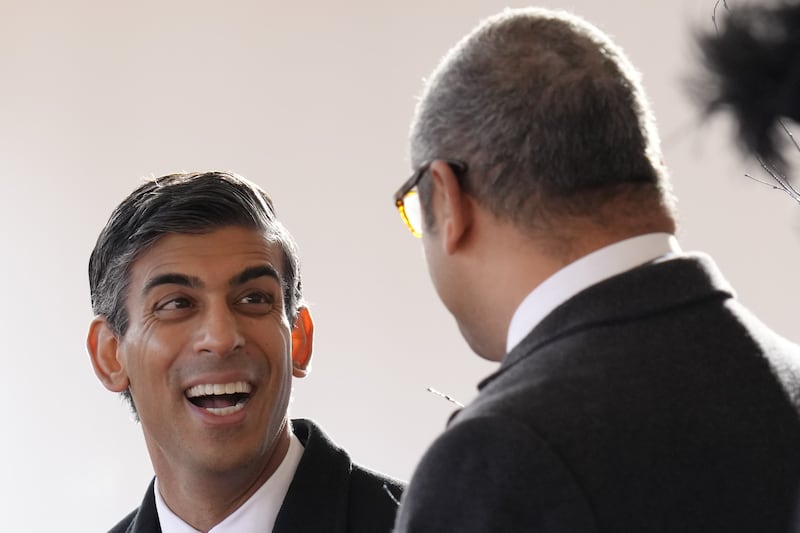Rishi Sunak’s Rwanda Bill has finally become law after weeks of parliamentary deadlock, paving the way for deportation flights to get off the ground.
The legislation is the latest attempt by the Government to revive its plan to hand asylum seekers who come to the UK by crossing the Channel a one-way ticket to Kigali. The deal has been plagued by setbacks since it was signed two years ago.
The Prime Minister has pinned his hopes on the Bill, which declares the east African nation a safe country and seeks to ensure the scheme – which had been ruled unlawful by the Supreme Court – is legally watertight.
Now the plan has become an Act of Parliament, questions remain over what happens next to put it into action.

– When will Rwanda flights take off?
The first plane carrying asylum seekers could depart in July, after Mr Sunak acknowledged it could still take 10 to 12 weeks to get flights off the ground.
This would be more than two years since the first flight ever attempted under the deal was grounded amid last-minute legal challenges.
The Prime Minister did not confirm an exact date during his Downing Street press conference on Monday and it is still unclear whether flights will take place before the next general election.
Ministers and officials had previously repeatedly stressed their intention to get planes off the runway “in the spring” and “as soon as possible” – with Treasury minister Laura Trott even saying there were “many definitions of spring”.
But the latest details indicate Mr Sunak is now set to miss his self-imposed target.
Scheduling flights is likely to take some time due to the steps officials must follow including serving notice on migrants they intend to remove from the UK.
– Could there be more delays?
Yes, there is a chance of this happening.
Campaigners opposing the plans, and individual migrants who are told they are to be sent to Rwanda, could seek to take the Government to court again in a bid to stop flights.
Whether any legal challenges could be successful in the light of the new laws remains to be seen.
Flights will also depend on there being an aircraft available to transport migrants in the wake of difficulties finding an airline willing to charter flights.
But Mr Sunak said an airfield is “on stand-by” and commercial charter planes have been booked “for specific slots”.
According to The Times, Downing Street has drawn up plans to order the Ministry of Defence to repurpose at least one leased aircraft such as an RAF Voyager, if required.

Asked whether it was appropriate to use RAF planes, the Prime Minister told broadcasters: “My priority is to stop the boats.”
However, campaigners have called on AirTanker, the company which supplies Voyager to the RAF, not to get involved and claimed tens of thousands of people had written urging the same.
Meanwhile, UN experts have raised concerns about the role of airlines and aviation authorities in facilitating the removals.
– How much is this all costing?
The cost of the troubled scheme could soar to half a billion pounds, plus hundreds of thousands more for each person deported, an investigation by Whitehall’s spending watchdog found.
The Government refused to say how much more money, on top of the £290 million already confirmed, the UK had agreed to pay Rwanda under the deal, but a National Audit Office report revealed millions more in spending including £11,000 for each migrant’s plane ticket.
When questioned by MPs last week, the Home Office’s most senior civil servant, permanent secretary Matthew Rycroft, indicated officials were seeking a drop in migrant Channel crossings of about 10,000 people to consider the Rwanda scheme value for money.
Dan Hobbs, the department’s director general for migration and borders, told the Public Accounts Committee: “It was never intended that this would be sought to be done at significantly lower cost to the UK. This was about having a quality scheme that delivered for the individuals and gave a five-year package of support.
“There are higher costs at the beginning due to the processing of the individuals and their assimilation and integration into Rwanda. Over the period of the five years, we would expect them to become more self-sufficient.”
– Will Rwanda flights curb Channel crossings and see Sunak meet his pledge to ‘stop the boats’?
No-one knows.
It is thought there would need to be significant reduction in Channel crossings for the flights to be officially assessed as succeeding in having their desired deterrent effect.
But Mr Sunak has categorically promised to put an end to crossings altogether with his clear “stop the boats” catchphrase, and has routinely pointed to the Rwanda plan to achieve this, describing it as an “indispensable deterrent.”
Home Secretary James Cleverly went a step further, setting himself a target of meeting the Prime Minister’s pledge by the end of this year – a deadline Downing Street later refused to repeat.

He has always maintained a range of policies, including multimillion-pound deals with France, would be needed alongside the Rwanda plan to curb Channel crossings.
Sunday April 14 saw the busiest day for Channel crossings so far this year after 534 migrants were recorded making the journey.
In 2024 to date, 6,667 people have arrived in the UK after making the crossing – 20% higher than this time last year (5,546) but slightly lower (down 0.4%) than the figure recorded at this stage in 2022 (6,691).
PA news agency analysis of the figures suggests 76,031 migrants have made the journey since then home secretary Priti Patel signed what she called a “world-first” agreement in Rwanda’s capital Kigali on April 14 2022, with 43,730 taking place since Rishi Sunak became Prime Minister six months later.
– Could this pave the way for other Rwanda-style deals?
Not yet but the Government is exploring other options.
Britain reportedly approached countries including Costa Rica, Armenia, Ivory Coast and Botswana a bid to replicate the Rwanda scheme after Mr Sunak gave the Home Office and Foreign Office a deadline of last autumn to secure two additional deals, according to The Times.
But, appearing before MPs, Mr Rycroft said only a “tiny number” of countries would be suitable for a Rwanda-style deal.
Costa Rican President Rodrigo Chaves appeared to rule this out in a post on social media which suggested the UK had been told his country will not receive any migrants.








